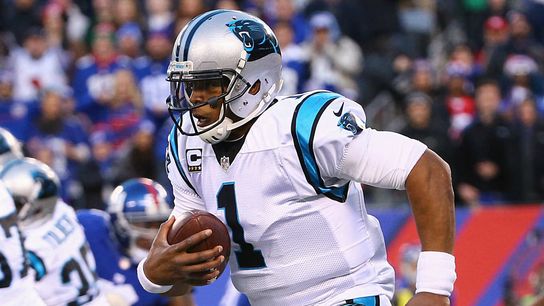Remember Brad Childress?
The one-time Minnesota Vikings head coach spent the last three seasons in an interesting job for the Kansas City Chiefs' organization: spread game analyst. The duties were exactly as they sounded -- Childress's job was to study the spread offense and all its iterations and analyze how it could most benefit the Chiefs. That gave him an interesting perspective on how the spread revolution at the amateur level has left professional football at a crossroads.
As Kevin Clark writes for The Ringer:
That dissonance isn’t unique to Childress, as offensive minds across the league are warming to certain aspects of the spread even as they remain dubious about whether it can be widely implemented in the pro game. That dissonance is matched by something equally fierce: resignation. NFL decision-makers know that the wide-open offense long rooted in the college game isn’t going away, which means it’s time to adjust, creating a pro atmosphere that’s more familiar to, and more conducive to maximizing the potential of, talent that grew up in a spread world.
“Anyone who pays attention sees [its influence on lower levels of football] and you have to understand the nuances to understand the sport,” said Chiefs general manager John Dorsey. “When I used to see high school or even youth football, they were just running the ball, or running the wing-T. Now they are running the spread option, and that has an impact on the professional game.”
The gist of the NFL's issue is this: NFL offenses are the way that they are because A) teams are compelled to keep a high number of blockers around their quarterbacks to protect their nine-figure investments and B) complicated NFL defenses demand complicated play calls that simply can't be conveyed through hand signals and one-word commands.
Says Childress: “[College spread quarterbacks] never had to say ‘red switch right closed end right split z halfback flat’ — they don’t know who to talk to when and when to take a breath.... You don’t realize how big a problem the center-quarterback exchange is until the ball is rolling on the ground at practice and you’re saying ‘Oh my god.’”
Still, there are positives. Spreading defenses out forces them to become easier to read and have allowed quarterbacks like Cam Newton to flourish.
The future of the spread in the NFL, though, is dependent on how offenses negotiate the risk-reward of exposing defenses' intentions while also exposing their own quarterbacks and how many more Newtons and Carson Wentzes the college game can produce. Still, Childress's testimony says the college game will continue trickling upward for years to come.
"It’s hard not to look at what those college offenses are doing and say 'that’s a hell of a good thing these guys are doing.'"
"And that," Childress said, "is when you steal those things."
